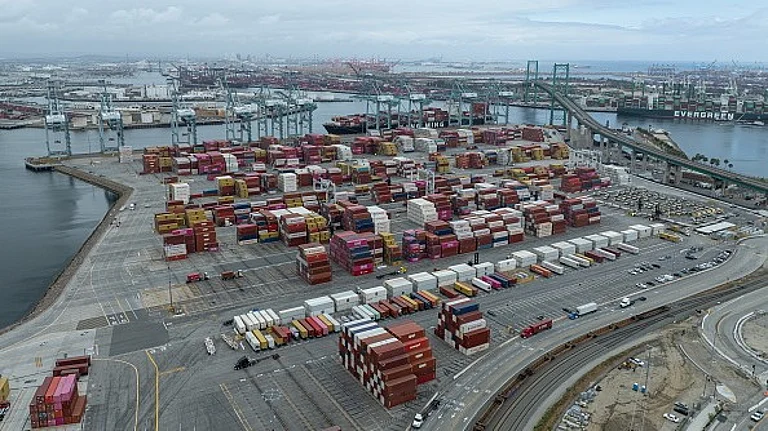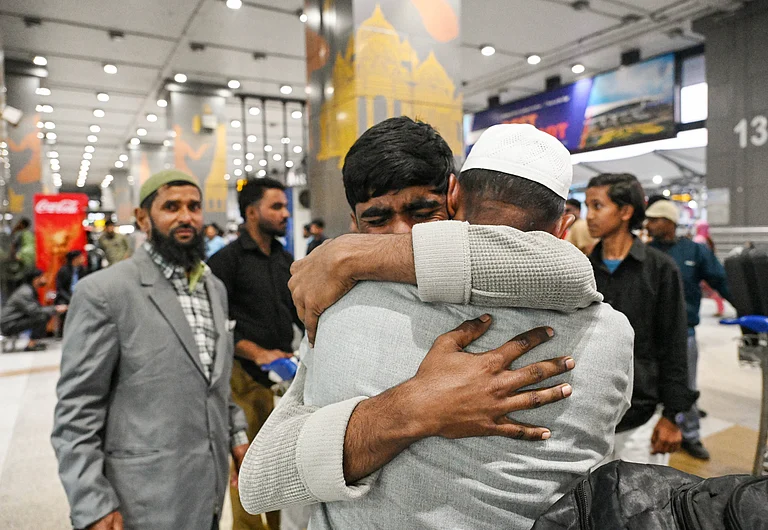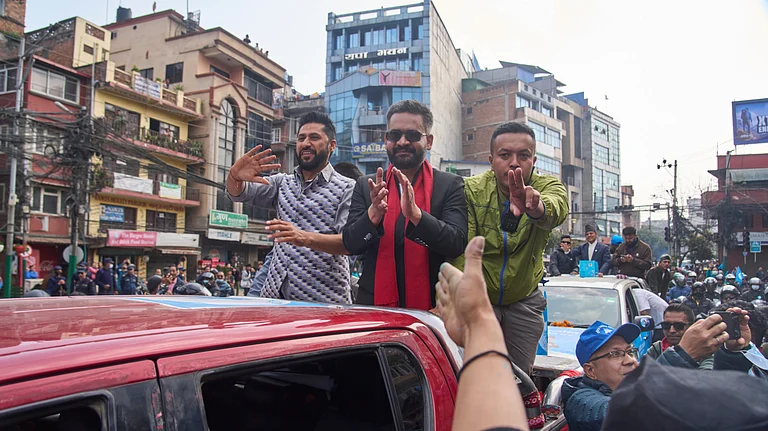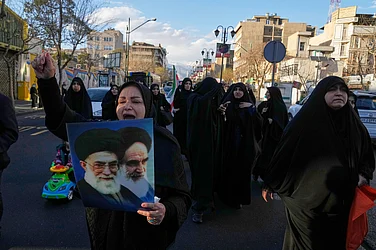It’s done and dusted. Universally described as ‘norm-busting’ or ‘precedent-upturning’, the 20th Congress of the Communist Party of China (CPC) gave short shrift to the conventions of tenure, succession and political appointments which were in place since the turn of the century, and finalized the new Central Committee, the Politburo and the absolute heart of the Party leadership – the Politburo Standing Committee (PSC). Xi Jinping has, as was expected, established his complete dominance and primacy in the CPC. The shorthand approach by analysts has been to compare this with the era of Mao Zedong and Xi’s ambition to not only enshrine himself alongside the man who “liberated” China but also eclipse the man who made “China rich,” aka Deng Xiaoping. The parallel is not entirely off the mark, but the point is that while we have seen (and will continue to see) Xi invoking Mao it is highly unlikely that we will see ‘Maoism’ in action under Xi. Mao had privileged ‘struggle’ over stability and if there is one element of the post-Mao scenario that Xi has held sacred, to the point of complete suppression of dissent, it is the stress on stability.
In the selection of the new line-up of the PSC, it was long obvious that detractors would find no place, hence, while the ouster of former premier Li Keqiang was expected, that of Hu Chunhua or Wang Yang who had earlier been in Xi’s inner circle, was not . All the other six members of the new PBSC have been closely associated with Xi for a long period of time and will be the people who Xi will depend upon to regulate the other institutions critical to the control of power in China – the Central Commission for Discipline Inspection (CCDI) and the Internal Security department. These are, Shanghai party chief Li Qiang, widely acknowledged as number 2 in the hierarchy and the most probable candidate for the next premier; Guangdong province chief Li Xi who will be heading the CCDI succeeding the former anti-corruption chief Zhao Leji, who is also a member of the new team; Wang Huning, who recently shot into the limelight as “chief advisor of Zhongnanhai” (the CPC’s central headquarters), Beijing party chief Cai Qi, and Ding Xuexiang, another influential advisor to Xi. Xi Jinping would also be the Chairman of the third critical institution, the Central Military Commission, in which three PLA Generals from the Western Theatre Command (which borders India) have been promoted. This has obviously generated much concern in India and will need to be monitored closely. For what it’s worth, it may be mentioned that the 20th Central Committee has no female representation for the first time in over 25 years.
So, this is a team of Xi’s “allies” who will have absolute loyalty to Xi.
However, it is also a set of people who have been brought together to steer the country through “bai nian wei you zhi da bian ju” - unprecedented (big) changes the likes of which have not been seen in a century. Interestingly, throughout the PRC’s history the Communist Party has always sought to identify the chief characteristic that defines international relations at a particular historical juncture which would then determine the nature and thrust of the specific policies to be adopted. This continues to be in place. China is up against an entirely new set of challenges and threats. The number of times Xi mentioned ‘security’ in his report to the Congress, is being seen by experts as testifying to either his paranoia (internal and external) or to his prioritization of security over growth. It is however difficult to concur with this conclusion on a careful perusal of the document in its entirety. For one, the references to economic growth in the context of China’s rise as a world power are mentioned in conjunction with new security threats to that very growth process.
There is a whole new range of “threats” emanating from the tech-war underway between the US and China and the US sanctions, particularly in the IT sector. Given the fact, as Xi said in his report, that China’s capacity for scientific and technological innovation is not strong enough, all out efforts will be made to “accelerate the realization of a high level of technological self-sufficiency;” and ensure “supply-chain resilience.” This speaks more to Xi’s determination to take all necessary steps to prevent the moves to thwart China’s modernization - ensuring growth through addressing security concerns. As the Report asserted, “mechanisms for countering foreign sanctions, interference and long-arm jurisdiction will be strengthened.” On this will depend China’s continuing growth. It is also necessary to bear in mind the backdrop in which the 20th Congress took place. The contrast with the upbeat mood in 2017 when XJP secured his second term, and the more somber atmosphere of 2022 could not be greater, viz, the economic downturn and related issues, the social tensions due to zero-Covid policy, the fallout of the natural disasters in the domestic context and the sharp rise of geopolitical challenges in the PRC’s external sphere following the Ukraine war.
The 20th Congress saw Xi placing the achievements of the past years and the tasks for the future as the foundational basis of his leadership, authority and prestige. There was neither an overdose of celebration nor any lack of assertion of the accomplishments; rather the overall tone was sober, reflected in his statement that China should watch out for “high winds, choppy waters or even dangerous storms” and be prepared “like a student sitting for a never-ending exam”. Undoubtedly, he has brought together a team comprising loyalists entirely. But that’s only one side of the coin. The other side is the incorporation of the ‘Two Establishes’ (establish Xi as the ‘core leader’ and establish Xi Jinping Thought of Socialism with Chinese Characteristics for the New Era as the guiding philosophy) and the ‘Two Safeguards (safeguard the core status of Xi within the Party and safeguard the Party’s central authority.) Xi’s writ is to be all-encompassing and all-embracing.
But, the overall agenda, the goals, and objectives (doubling the size of the nation’s economy by 2035), the iteration of the challenges in the next quinquennial, seem to be also seeking to bring about a broad – and ‘new’ consensus for the ‘new era’ within the Party. That would explain Xi’s call for “unity of thought, unity of will, unity of program, unity of action,” to bring about “national rejuvenation” and give concrete shape to the China Dream. The CPC’s agenda above all is an agenda for nation-building under the Party leadership. Priority is thus accorded to strengthening the Party and unifying the leadership; building a moderately prosperous society by abolishing poverty and ushering a new development philosophy; advancing socialist culture while enhancing ecological conservation; diffusing risks along with ensuring social stability; and managing the pandemic with the approach that ‘lives, above all, mattered’.
While his critics have assessed Xi’s anti-corruption drives as purging campaigns aimed at his opponents, they have resonated well with the ordinary people. The tightening of state controls on the private economy – a hallmark of Xi’s policy to reduce the inequities in Chinese society – is intended to garner broad support not just from the more marginalized and poorer sections but from those whose fortunes have seen a sharp downturn during the pandemic. It would certainly add to his ‘quanwei’ (authority and prestige) - an interesting cultural aspect highlighted by some Chinese scholars as more important than the formality of titles (though that is not being discounted.) The western obsession with capitalism as the only route to establishing a market economy fails to take on board the range of options being explored by the post-Mao leadership, (and now Xi in his “New Era”,) in its quest for regaining economic dominance. Dealing with the dubious status of being one of the most unequal societies in the world would likely be of greater consequence for Xi, than the response of the western capitalists to the clamping down on the private sector of the economy. The greatest asset of the Party as Xi pointed out was “self-reform” – only this would help China “escape the historical cycle of rise and fall.”
‘Ideology’ (and politics) of one kind or the other has shaped the PRC since its inception. However unacceptable or problematic it may be to the observer, it can (and should) not be sidestepped in China – it is never a useful way to grasp the CPC-led changes in all their complexity. The issue is what kind of politics and ideological framework. ‘Xi Jinping’s Thought on Socialism with Chinese Characteristics for a New Era’ (2012-2022, the Era of Xi Jinping) had already been incorporated in the Party Constitution during the 19th Party Congress and is now the third major component in the ideological corpus of the CPC. An astute former Indian diplomat rightly counselled that we should not allow the west to interpret China – or its politics for that matter - for us. There are certainly new ideas and new policies – a whole new economic and political lexicon has evolved over the past decade – and it is necessary to engage with that. Xi has made it clear that without the CPC, China’s tryst with its destiny would fail to materialize – but that has been very firmly underscored since the days of Deng.
To be sure, the casualty in the last decade has been collective leadership and the lack of accommodation of differing voices in the ruling elite. Xi could hardly be unaware of the lessons of history in this regard. Does the domestic and international situation that the PRC finds itself in today, warrant a strong leader with an such an overwhelming concentration of power? Would it address the problem of bringing errant provinces in line with the Central policies and make for more effective implementation of policies? Would it ensure the uniting of forces behind the next stage of reforms on the one hand and the uniting of domestic opinion in China’s external policies on the other? Would there be any mechanisms to incorporate different perspectives, inevitable in a country as large, complex, and diverse as China? These questions do not have easy answers.
For India the situation has gotten a tad more complicated. There is no dearth of analysts warning against more aggression from China. Possibly for the first time in history, there is such a huge asymmetry of power across the Himalayas. However, neither side can afford to allow what can be a mutually flourishing partnership to become a a festering sore. Geography makes China a very different sort of challenge for India compared to other countries across the oceans and the China threat narrative becomes a very limited and limiting way to address it.
But for now, Xi Jinping has set the stage for a tightly controlled, CPC-led, PRC’s march into the next phase of China’s rise in 21st century.
(Author Prof. Alka Acharya is a faculty member of Centre for East Asian Studies, School of International Studies, Jawaharlal Nehru University alongside being the Honorary Director of Institute of Chinese Studies, New Delhi)























